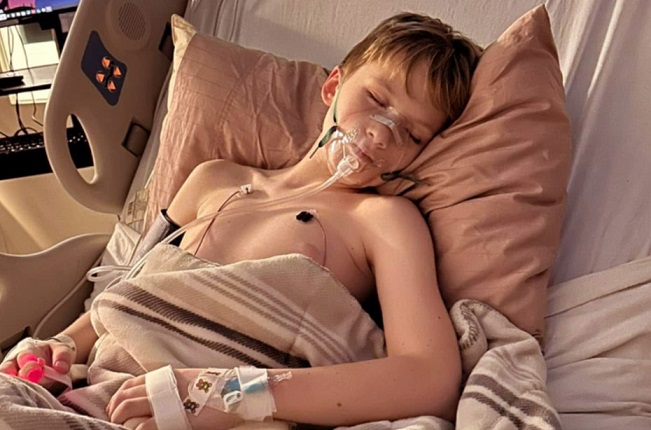Nikhil Prasad Fact checked by:Thailand Medical News Team Sep 06, 2025 4 months, 2 weeks, 1 day, 16 hours, 48 minutes ago
Medical News: A Silent Threat Emerging in Pediatric COVID Cases
COVID-19 is widely known for its impact on the lungs, but new findings reveal that the virus also has a significant effect on children’s kidneys. A recent study conducted by researchers from Cairo University in Giza, Egypt, found that nearly one in five children admitted with suspected or confirmed COVID-19 developed acute kidney injury (AKI). This
Medical News report sheds light on a hidden complication that parents and doctors must not overlook.
 COVID-19 Linked Kidney Damage in Children Raises New Concerns
Study Details and Patient Profiles
COVID-19 Linked Kidney Damage in Children Raises New Concerns
Study Details and Patient Profiles
The study examined 120 children between 1 month and 13 years old who were hospitalized with suspected or confirmed COVID-19. None of these children had a history of kidney disease before admission. Among them, 22 children (18.4 percent) developed AKI, and almost half of these severe cases required dialysis treatment to replace lost kidney function. The majority of children with AKI also had more severe symptoms, including high fever, vomiting, diarrhea, and respiratory distress that often required breathing support.
What the Tests Revealed
Laboratory tests showed worrying differences in children with kidney involvement compared to those without. Those with AKI had lower platelet counts, higher levels of C-reactive protein (CRP) indicating inflammation, reduced calcium levels, and elevated phosphorus in their blood. These abnormal readings are not direct proof of kidney injury but serve as warning markers. The researchers also noted that obesity was found only among children who developed kidney injury, suggesting that excess weight may add to the risk.
The Hidden Signs in Urine
Urine tests revealed abnormal results in two-thirds of the children studied. Findings included blood in the urine, protein leakage, and the presence of casts, which are tiny tube-shaped particles that indicate kidney stress or damage. Some children experienced reduced or even no urine output, while a few had visible changes in urine color ranging from very dark to reddish.
Why These Findings Matter
The study highlights that children with COVID-19 are not immune from serious complications beyond lung infection. Gastrointestinal symptoms such as vomiting and diarrhea contributed to dehydration, which likely worsened kidney injury. More severe respiratory problems, higher heart rates, and greater need for intensive medical support were also linked to kidney complications. This demonstrates that AKI is not just a side effect but part of a larger systemic impact of the virus on children’s bodies.
Final Thoughts and Medical Implications
The study concludes that acute kidney injury is a frequent and serious complication among children hospitalized with COVID-19, affecting about 18 percent of cases. Early signs such as abnormal urine tests, high inflammation markers, and low platelets can help doctors identify those at higher risk. While t
he research does not prove direct causation, it strongly suggests that COVID-19 can trigger dangerous kidney problems in young patients. These findings emphasize the need for early monitoring of kidney function in all hospitalized children with COVID-19, especially those with dehydration, obesity, or severe inflammatory responses. Protecting kidney health must become a key priority in pediatric COVID-19 care, as untreated kidney injury can worsen overall illness and recovery.
The study findings were published in the peer reviewed journal: Egyptian Pediatric Association Gazette.
https://link.springer.com/article/10.1186/s43054-025-00422-2
For the latest COVID-19 News, keep on logging to Thailand
Medical News.
Read Also:
https://www.thailandmedical.news/news/doctors-from-turkey-warns-that-children-exposed-to-sars-cov-2-are-at-risk-of-acute-kidney-injury
https://www.thailandmedical.news/news/children-face-long-term-gastrointestinal-issues-after-covid-19-infection
https://www.thailandmedical.news/news/doctors-warn-that-covid-19-can-cause-severe-central-nervous-system-injury-in-children
